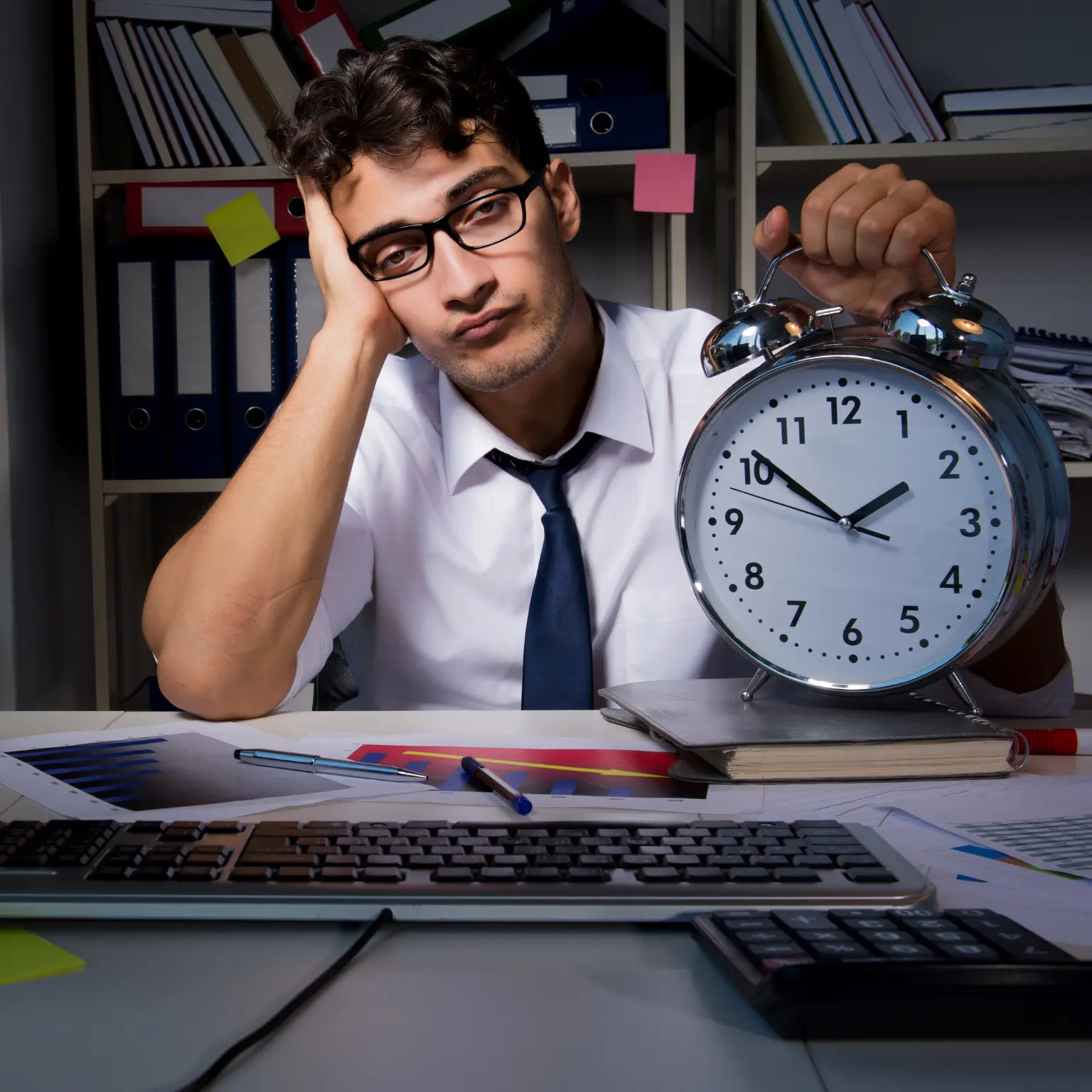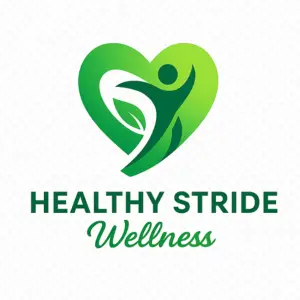
Are You Getting the Hours of Sleep Recovery Needed for Optimal Health?
At Healthy Stride Wellness, we understand that even with a full night’s rest, you might still feel exhausted.
The truth is, it’s not just about the hours of sleep, but the quality and recovery your body needs to function at its best.
Achieving optimal sleep recovery is crucial, yet many underestimate its importance.
Discover how many hours of sleep recovery are optimal for adults and learn how to enhance your overall health.
Table of Contents
Key Takeaways
- Adults generally need between 7-9 hours of sleep for complete recovery, but this varies based on individual factors like age and physical activity.
- Proper sleep recovery enhances physical, mental, and emotional well-being, reducing the risk of chronic health issues.
- Achieving quality sleep involves understanding best practices, such as maintaining a consistent sleep schedule and creating a restful environment.
What is Sleep Recovery?
Sleep recovery is more than just closing your eyes and getting some rest.
It involves the body entering various sleep stages, including light sleep, deep sleep, and REM (Rapid Eye Movement) sleep.
Every stage has a distinct role in the recovery process.
For example, deep sleep focuses on physical restoration, such as muscle repair and immune system strengthening.
REM sleep is essential for mental recovery, such as memory consolidation and mood regulation.
Knowing the hours of sleep recovery needed for optimal health means understanding these stages and ensuring you spend enough time in each.
Many people experience poor sleep quality due to disruptions or stress, leading to insufficient recovery, even if they sleep for the recommended duration.
How Many Hours of Sleep Recovery Are Optimal for Adults?
The answer to how many hours of sleep recovery are optimal for adults can vary based on several factors, such as age, activity level, and overall health. Most adults need about 7-9 hours of sleep each night.
However, this isn’t a fixed rule.
Some individuals may find that they feel rested with 6.5 hours of quality sleep, while others may need a full 9 hours, especially if they lead highly active lifestyles or have demanding work schedules.
An important point to consider is sleep efficiency—the percentage of time you spend asleep while in bed.
If you go to bed for 8 hours but spend 2 hours tossing and turning, your sleep efficiency is reduced.
Improving sleep efficiency through practices like maintaining a consistent bedtime and creating a quiet, dark environment can help you maximize the hours of sleep recovery needed.
For example, in a study shared by the National Institutes of Health (NIH), it was found that individuals who practiced a consistent bedtime routine were able to increase their deep sleep stages by nearly 20%, improving physical recovery even with the same overall hours of sleep. You can read more about the effects of sleep regularity and efficiency on recovery at NIH.
Is 7-8 Hours of Sleep Enough for Full Recovery?
While 7-8 hours of sleep may be sufficient for many adults, it is crucial to focus on the quality of sleep within that duration.
The body needs to go through various sleep cycles, including deep sleep and REM sleep, for full recovery. But, is 7-8 hours of sleep enough for full recovery?
The answer depends on whether you can achieve these essential sleep stages within that timeframe.
If you struggle to enter deep or REM sleep, you might not be getting the complete recovery your body and mind need.
For example, deep sleep is critical for physical recovery, as the body repairs tissues, builds bone and muscle, and strengthens the immune system during this stage.
Without sufficient deep sleep, even 8 hours of sleep might not be enough to support optimal health.
According to Sleep Foundation research, a recent survey showed that individuals who avoided caffeine after 3 p.m. experienced a 15% improvement in their REM sleep quality. These small adjustments can make a difference in achieving the hours of sleep recovery needed. You can find additional information at Sleep Foundation.
Incorporating relaxation techniques like mindfulness meditation before bedtime can help enhance the quality of sleep, ensuring you get the most out of your hours of sleep recovery needed.
Sleep Recovery for Physical and Mental Health
Physical Recovery: How Much Sleep Is Needed After a Workout?
When it comes to physical activity, sleep plays a fundamental role in the body’s recovery process.
Exercise, especially intense or prolonged activities, creates micro-tears in muscle fibers that need repair.
Sleep is when this repair process happens, making it essential for athletes and active individuals to prioritize rest.
So, how much sleep is needed for physical recovery after a workout?
Research suggests that 8-10 hours of sleep may be necessary for those who engage in regular, high-intensity workouts.
This allows the body to not only repair muscle fibers but also replenish energy stores and release growth hormones, which are vital for muscle development.
For individuals with less intense exercise routines, the standard 7-9 hours may be sufficient.
Additionally, the question of how many hours of sleep are necessary for muscle recovery highlights the importance of getting deep sleep.
This stage is crucial because the body performs most of its tissue repair and recovery during deep sleep.
Those struggling with muscle soreness or delayed recovery times may benefit from ensuring they reach this deep sleep stage every night.
Techniques like stretching before bed or using magnesium supplements can aid in muscle relaxation, promoting better sleep quality.
Mental Recovery: What Is the Recommended Amount of Sleep?
Mental recovery is equally important as physical recovery.
The brain processes emotions, consolidates memories, and resets during sleep, especially in the REM stage.
What is the recommended amount of sleep for mental recovery?
Generally, 7-9 hours is recommended for most adults.
Within this timeframe, the brain has the chance to enter and complete several REM cycles, each crucial for memory retention and emotional balance.
The benefits of REM sleep go beyond cognitive enhancement. It also helps manage stress and reduces the risk of mental health issues like anxiety and depression.
If you find yourself feeling emotionally drained or unable to focus despite getting enough sleep hours, it may indicate that the quality of your REM sleep is inadequate.
Simple steps like creating a relaxing pre-sleep routine, avoiding electronic devices before bed, and maintaining a comfortable sleep environment can significantly improve the quality of mental recovery.
Best Practices for Achieving Optimal Sleep Recovery Time
To maximize the hours of sleep recovery needed, it’s essential to focus on quality over quantity.
Below are best practices for achieving optimal sleep recovery time:
- Establish a Consistent Routine: Going to bed and waking up at the same time each day regulates your body’s natural clock, helping you fall asleep and wake up more easily. This consistency improves your sleep efficiency and quality.
- Prioritize Your Sleep Environment: A cool, dark, and quiet environment promotes better sleep. Consider blackout curtains, earplugs, or a white noise machine to create the ideal setting for restorative sleep.
- Engage in Relaxation Techniques: Practices such as meditation, deep breathing, and yoga can calm the mind and prepare your body for sleep. Incorporating these into your nighttime routine can increase the likelihood of entering deep sleep stages.
- Monitor Your Diet and Caffeine Intake: Avoid caffeine, alcohol, and heavy meals close to bedtime, as they can disrupt your sleep cycle. Opt for a light snack if needed and try drinking herbal teas that promote relaxation, such as chamomile.
- Stay Physically Active During the Day: Engaging in regular physical activity can help you fall asleep faster and reach deeper sleep stages. However, avoid exercising close to bedtime, as it can be too stimulating and interfere with your ability to sleep.
Tailoring Sleep Recovery Hours Based on Individual Needs
Knowing how to calculate the right sleep recovery hours for your body is key to personalizing your sleep schedule.
Everyone’s sleep needs differ, influenced by age, lifestyle, and physical activity. Here are some tips for adjusting sleep duration based on age and activity level:
- Young Adults and Teenagers: This group typically needs 8-10 hours of sleep as their bodies and minds are still developing. More sleep helps in growth and ensures better cognitive performance.
- Adults (26-64): Generally, 7-9 hours is ideal, but for those with demanding physical routines or high-stress jobs, leaning towards the upper end of this range may provide the necessary recovery.
- Seniors (65+): Older adults often face challenges with sleep quality. While they may only need 7-8 hours, focusing on enhancing sleep efficiency through relaxation techniques and a calm sleep environment is crucial.
When calculating the right amount for you, start by experimenting within the recommended range and track your energy levels, mood, and physical performance.
Adjust your sleep time based on these observations until you find the balance that leaves you feeling rested and energetic throughout the day.
Natural Ways to Enhance Sleep Recovery for Athletes
Athletes have unique needs when it comes to sleep, as their bodies undergo more wear and tear.
Here are some natural ways to enhance sleep recovery for athletes:
- Eat a Balanced Diet: Consuming foods rich in protein, omega-3 fatty acids, and magnesium helps repair muscles and promote deeper sleep. Great options include fish, nuts, and leafy greens.
- Stay Hydrated: Dehydration can lead to muscle cramps and sleep disturbances. Drink plenty of water during the day and avoid excessive liquids right before bed to prevent interruptions.
- Use Natural Sleep Aids: Incorporate natural aids like melatonin supplements or herbal teas, such as valerian root or lavender, which promote relaxation and deeper sleep cycles.
- Active Recovery Techniques: Engaging in light stretching, foam rolling, or yoga before bed can relax muscles and prepare the body for a restful night, enhancing the hours of sleep recovery needed.
Conclusion
In summary, the hours of sleep recovery needed for optimal health depend on various factors like age, physical activity, and individual health conditions.
By understanding how many hours of sleep recovery are optimal for adults and integrating best practices for achieving optimal sleep recovery time, you can enhance both the quality and quantity of your sleep, ensuring comprehensive physical and mental recovery.
Whether you need 7 hours or a full 9 hours, focusing on consistency and quality is the key to waking up feeling refreshed and ready to face the day.
If you find yourself unsure about your sleep needs, remember to listen to your body and adjust your habits until you achieve the desired energy levels and mood balance.
Prioritizing sleep is one of the most effective ways to improve your overall health, and it’s a journey worth committing to.
Follow Healthy Stride Wellness for more insights on enhancing your wellness journey, including the Hours of Sleep Recovery Needed and sustainable lifestyle practices.
FAQs
What is another word for stress buster?
Another term for stress buster is ‘relaxant’ or ‘tension reliever,’ which refers to activities that help reduce stress.
What is an example of a stress buster?
An example of a stress buster is practicing yoga, which helps release endorphins and alleviate tension.
What does a Stress Buster do?
A stress buster is any activity or technique that reduces stress and promotes relaxation.
What is the opposite of a stress buster?
The opposite of a stress buster would be a stressor—something that causes or increases stress levels.
By following these guidelines, you can unlock the full potential of your sleep recovery, ensuring you wake up energized and ready to take on the day. For more tips and expert advice, stay connected with Healthy Stride Wellness.
Please Note: Healthy Stride Wellness provides educational content and is not a replacement for medical advice. Consult a healthcare provider for any health issues.




